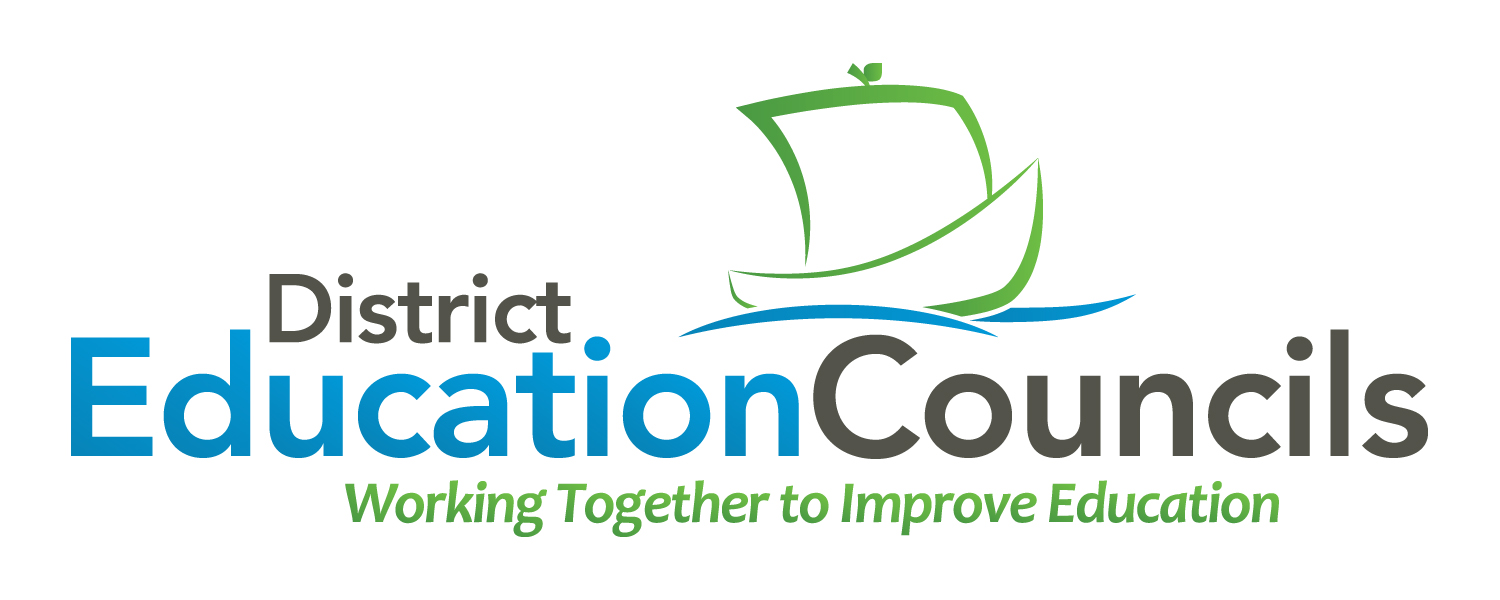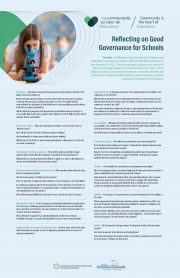Reflecting on
Good Governance for Schools
Situation
The Minister of Education and Early Childhood has undertaken consultation to propose a reform of education governance in New Brunswick in 2022. There are important questions to be considered before undertaking changes to an important democratic right. Current District Education Councils would like parents, community members and politicians to consider the following factors when evaluating the options proposed by the Department of Education.
Education is everyone’s business and local governance decisions can impact the entire community.
Elected school boards have been one of the oldest forms of democracy in Canada, starting in 1816, and gives community the right to choose the superintendent responsible for the education of their children and to ensure public education reflects local culture, values and priorities.
Will the minister’s proposed school governance model allow everyone the right to vote or will it limit local voice to parents with children in school? Will the rights be the same for French and English?
What are the proposed changes to school districts and/or “regional zones”?
How will the size of the districts influence decision-making?
Are there benefits to having more localized decision-making?
Will the size of the district or area increase participation or limit power to those who can travel to meetings?
How will the proposed model increase opportunities for more New Brunswickers to participate in local governance?
Will positions in school governance be limited to parents or open to all taxpayers as owners and beneficiaries of the education system?
What specific powers will each body have in the proposed model?
Are there more groups of citizens but less power?
Does the authority to make education decisions stay in the region or is it centralized?
Do community representatives have the authority to issue directives to the district, to choose community priorities, to set regional budgets, to evaluate the performance of the superintendent and the district?
Who will have responsibility for the location of new schools and school closures?
Does the proposed model give locally elected organizations the autonomy to challenge, oppose decisions of the minister or educate the public about decisions and situations that are considered not to be in the best interests of students and the community?
Who will have the opportunity to speak publicly about infrastructure issues, insufficient funding, or to push for local priorities such as student mental health?
On what topics and in what ways will the minister be required to hear the aspirations, preferences and concerns of regional communities?
In the proposed model, is the superintendent accountable to the community or the minister?
Will there be an elected body that will mediate between the school district and the minister when there are concerns about the impact of department decisions on the community, students and staff?
The current model gives community the right to elect representatives who hire, direct and evaluate the superintendent. Will a new model require the superintendent to manage the district according to community values and local priorities?
Will proposed changes make the public education system more accountable to the communities or does the model centralize responsibilities making schools and districts more accountable to the ministry?
How will changes increase public education accountability to the public they serve?
How will a new governance structure be supported?
Does the plan include training and support to help elected representatives become strong leaders in the education system?
Beyond the costs of researching and implementing reform, has the government provided structures and budgets to support recruitment, training, and ongoing administrative and governance support?
Is the timeline for consultation and development reasonable?
With the ongoing pandemic, can anyone really give the time and attention needed to create a well-planned and sustained governance change?
Some provinces, included New Brunswick, have made big changes only to reverse course a few years later. Is 6 months enough time to engage with stakeholders, design a governance model, gather feedback from the public and the education system and develop an implementation plan? What is the urgency?
Are changes to the governance structure more important than stability at this time?
The 10 year provincial education plan, teachers, parents, administrators, DECs, and the Auditor General of New Brunswick have all called for a period of stability in the education system, long before the pandemic.
Even if changes will improve the governance structure, it will be a distraction from student success and generally take years to fully implement. Is this the best time to introduce changes to the way districts are governed?
Do the proposed changes respect the linguistic duality of the education system?
Are they the same for Francophones and Anglophones?
Does the model respect Francophone rights to education governance under section 23 of the Charter of Rights and Freedoms?



